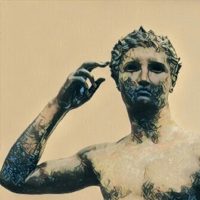I’m, along with esteemed colleagues, at this workshop at the Federal Ministry of Finance. You should come!
Organised by Professor Duncan Chappell, Dr Saskia Hufnagel, and Ms Marissa Marjos, this is the third of three Art Crime focused workshops, the first two of which were in London and were great. This workshop specifically focuses on the looting, plunder, and destruction of heritage. I’ll be giving a regional case study: trafficking of antiquities in and out of Latin America.
The workshop is free. Get your ticket here: https://www.eventbrite.co.uk/e/third-ahrc-workshop-art-crime-and-criminals-painting-fresh-pictures-of-art-theft-fraud-and-plunder-tickets-36039966510?aff=erelexpmlt
According to the Eventbrite page, confirmed speakers so far include:
Protecting Cultural Heritage – Agencies’ perspectives
- Samer Abdel Ghafour (UNESCO)
- Francoise Bertolotti (Interpol)
- Maryia Polner (WCO)
Looting and the Grey Market – Legal Perspectives
- Stefano Alessandrini (Consultant to the Avvocatura dello Stato, Italy and the Ministero per i Beni Culturali e Ambientali – Rome)
- Claudia von Selle (Zschunke Law Firm Berlin/Paris)
- Patty Gerstenblith (DePaul University, Chicago)
- Robert Kugler (Höly, Rauch & Partner Law Firm Berlin)
Terrorism, Iconoclasm and Related Trafficking
- Bonnie Magness-Gardiner (FBI)
- Lynda Albertson (ARCA)
- Sam Hardy (American University of Rome)
The Special Problem of Human Remains Trafficking and Desecration
- Duncan Chappell (University of Sydney)
- Damien Huffer (Stockholm University)
Protecting Cultural Heritage
- Valerie Higgins (American University of Rome)
- Laurie Rush (US Army, Fort Drum and Blue Shield)
- Joris Kila (University of Vienna)
Regional Case Studies
- Stefan Gruber (Kyoto University)
- Donna Yates (University of Glasgow)
- Helen Walasek (Independent researcher, London)
- Michaela Boland (Journalist, The Australian)
- Vicki Oliveri (University of Western Sydney)
- Ken Polk (University of Melbourne)
